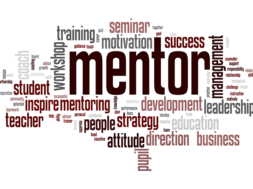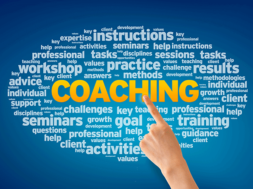
3 Things Your College Retention Plan Must Have
By Brian Willett, Vice President of Sales, Education Technology Associates and Orbund Student Information Systems
Colleges and universities are spending more money than ever before to attract and enroll potential students. As a former Admissions Executive for the largest private University in the state of Kentucky, I saw firsthand how much more difficult it was to find new students to attend one of our schools, and the costs associated with it, versus retaining the students that had already enrolled and started school.
Retention from the time a student applies to school as well as retention of students once they start school continues to be a challenge for colleges and universities, especially those colleges and universities who enroll nontraditional and online students.
Researchers from Rice University conducted a study of 49 articles targeting 61 experimental studies that examined interventions to improve educational attainment. The research titled “Supporting Students’ College Success: The Role of Assessment of Interpersonal and Intrapersonal Competencies” was released by the National Academies of Sciences, Engineering and Medicine and commissioned by the National Science Foundation.
Across the study, three competencies consistently showed evidence in supporting better grades, college persistence, and ultimately graduation.
The three competencies were a sense of belonging, a growth mindset, personal goals and values that college students perceive to be directly linked to the achievement of a future, desired outcome.
1. A sense of belonging:
A basic human condition that exists in all of us is that we want to belong. We want to be a part of something. Why do you think people buy Harley Davidson’s, join fraternities, attend certain social groups, support collegiate and professional sports teams, etc. The more we feel like we belong to one of these groups the more supportive and invested we become in those groups.
In the study, the researchers suggest that students determine their sense of belonging with whether the college environment feels welcoming or unwelcoming. Some studies show that in many underrepresented groups such as minorities, they feel less connected in college than their white counterparts.
Programs and policies aimed at promoting a sense of belonging need to focus on the specific needs of and challenges faced by particular student groups, identified by specific demographic profiles and life history experiences. One example is to create a mentor program. From my experience in business and in education, a mentor program is one of the best ways to create a closer relationship with a new student to college or a new employee to a company.
These mentor/mentee relationships allow the new student to college to have someone outside the institution’s personnel to ask questions to and learn from. There are just some questions a new student won’t ask people who they believe are part of the institution, but they will ask their mentor, and these questions could be the questions that they need to know the answers to, in order to be successful in college.
In my years in higher education and business, the schools and companies who use a mentor/mentee program, that are supported with resources and commitment, are more successful in retaining talent in the organization and students who persist.
2. Growth mindset:
Over 30 years ago, Carol Dweck and her colleagues became interested in students’ attitudes about failure. They noticed that some students rebounded while other students seemed devastated by even the smallest setbacks.
After studying the behavior of thousands of children, Dr. Dweck coined the terms “fixed mindset” and “growth mindset” to describe the underlying beliefs people have about learning and intelligence. When students believe they can get smarter, they understand that effort makes them stronger. Therefore, they put in extra time and effort, and that leads to higher achievement.
In the study, the researchers determined that students with a growth mindset were more apt to study and put in the effort required to be successful in their college studies.
In my 15 years of experience with working in college admissions with nontraditional students, I have found that prospective students are always in a state of transition from “Yes I believe I can do it” one day and the next they may be overwhelmed and think they can’t be successful. This is the challenge for colleges and universities. They must be there for the student when their self-confidence is wavering. The big question is, “How to do it?”
Is it possible to change the mindset of a person from a fixed mindset to a growth mindset? The simple and easy answer is yes, but how.
Here are a few ways. Students who enroll in a college, university or some other kind of continuing education, beyond high school, have varying levels of preparedness and confidence in their ability to be successful. But what is universal in all of those same people is their “want” to be successful.
Some students may require a lot of help in uncovering and developing their potential, while other students may need very little. That is why it is critical during the admissions process to determine where the student’s abilities are presently. This extra effort on the front end will help your school create the proper nudges at the right times when a student needs them. This process can be assisted through an application based software system or through individuals. Obviously, a system would be more financially friendly and more consistent.
Once a student starts to have some victories in their programs, they will start to see how they can be successful and their mindset will shift from a fixed mindset to a growth mindset.
3. Personal goals and values that college students perceive to be directly linked to the achievement of a future desired outcome.
As mentioned above, nontraditional students are in a constant state of flux, primarily within the first and second year of their college studies. All research shows that the longer a student stays in school, the chances of them graduating rises significantly.
Admissions representatives during the admissions process must seek to understand the goals and desires of the prospective student.
Unfortunately, most admissions teams are not equipped with the proper training to do this effectively, or they just skip this step altogether and enroll students as quickly as possible, thinking this will be the right solution.
What inevitably happens though, is the student hits the first bump in the road and decides to quit school. Many admissions representatives are not skilled enough to ask the right questions to understand the desires and goals of the prospective student. In most cases, the student themselves are not aware of their desires other than they believe attending college is the right thing to do for their future.
A few examples of questions an admissions representative could ask a student to get them thinking about their goals and desire are:
- In five years what are you doing then that you aren’t doing today?
- When you graduate college what is the first thing you are going to do to celebrate?
- What is the one thing you want to eliminate in your current situation more than anything else?
The goal of graduating college is commendable for everyone who attends a college or university. However, that goal can easily be forgotten if they are not reminded of why they chose this path to begin with.
A good coach is someone who looks at your performance and provides you feedback. While in college, students need this level of coaching as well. Just like a great athlete, when things are hard, they have to be reminded of the goal, and a great retention program at your school can do the same thing. It could be a combination of both electronic correspondences as well as face to face coaching.
So, what are the solutions to creating an environment where students can feel a sense of belonging, develop and maintain a growth mindset, and keep their goals aligned with their education and attainment of a better future?
I believe the first step is to develop an admissions team that is skilled in the area of speaking with prospective students to help them adopt personal goals based on their desires. The goal itself is a great start, but helping the student develop a why behind that goal helps cement it in their mind that this is something worthwhile and they are more motivated to stick with it.
The other important piece of this process is having a system to help students feel a sense of belonging to the school. This can be done in a variety of different ways, but for busy nontraditional students and online students, it can be even more challenging.
A platform or ecosystem is the best way to help create engagement as well as interactions between the student and staff, between the student and other students, and lastly, interaction between the student and faculty.
These interactions develop a sense of belonging and connection to your school. It also creates a system of accountability that can’t be created by using various social media channels to accomplish the same outcomes.
College students are no different from anybody else. Like most people, they have to be reminded of why they should keep going when things get difficult.
They also have to believe that they can keep going and overcome the challenges.
This is where most colleges and universities fall short. They don’t have a system in place that initiates and provides answers to questions when the student needs them. Instead, the student gets overwhelmed and decides to withdraw from school. And by this time, it is too late to save them.
A platform that fosters and creates engagement from the beginning of a students journey with your institution, through graduation, is not only required but is mandatory for you to ensure your students persist and have a great experience, which you can’t have one without the other. EdTech Associates has developed a platform that colleges and universities can use to engage with students on a regular basis and deliver answers when the student needs them
The theory behind the system is based on the Nudge Theory. This is a concept in behavioral science, political theory and economics which proposes positive reinforcement and indirect suggestions to try to achieve non-forced compliance to influence the motives, incentives and decision making of groups and individuals.
Choice architecture is the design of the different ways in which choices can be presented to consumers and is the process of how Nudge Theory is applied. In our Connected Campus product, students or prospective students are presented with choices by staff, faculty, and peers to nudge them in the direction they should be going to achieve the desired outcomes.
In his book, Nudge, Improving Decisions about Health, Wealth, and Happiness, Nobel Prize winner Richard Thaler, highlights example after example of how we can use Nudge Theory to help people and society as a whole, make better decisions.
Thaler points out that many times we make decisions based on the choices we have available to us. And for college students, when things become difficult, if you have always quit, or may have never experienced difficulty, your decision may be to just quit.
With a slight nudge, the student could decide to stay and work through the difficulty. It is impossible for staff and faculty to always be available for the nudge when a student needs it. An ecosystem that is constantly providing nudges, resources, and accountability can be just the push a struggling or unmotivated student needs at the right time.
Our hope at Education Technology Associates is that you found this article to be beneficial to you and your institution in getting you to think about your processes of enrolling and retaining students. We also want to invite you to reach out to us and request a demo of our Connected Campus product.
Resources:
Supporting Students’ College Success: The Role of Assessment of Intrapersonal and Interpersonal Competencies http://www.nap.edu/catalog/24697/supporting-students-college-success-the-role-of-assessment-of-intrapersonal
Growth Mindset; Carol Dweck https://www.mindsetworks.com/science/
Richard Thaler: https://en.wikipedia.org/wiki/Richard_Thaler
Nudge the book: https://en.wikipedia.org/wiki/Nudge_(book)
BRIAN WILLETT started his career as an admissions representative and held the position, System Director of Admissions for Kentucky’s largest private group of colleges and universities. Brian is the co-owner of MPACT Group Inc., an Admissions Training and Secret Shopping company. For the last three years Brian has worked with Dale Carnegie Training selling and conducting training for businesses all around the US. Brian has recently partnered with Education Technology Associates to sell their Retention Solution app as well as their Student Information System partnership with Orbund SIS.
Contact Information: Brian Willett // Vice President of Sales // Education Technology Associates and Orbund Student Information Systems // 502-296-7632 // brian.willett@edtechassociates.com // edtechassociates.com; orbund.com //Twitter: @bwillett79; Linkedin: bwillett555@gmail.com Facebook: https://www.facebook.com/brian.willett.5851











